The controversial system used to award A-Level students their results this year has led to 280,000 having their grades downgraded with calls for the government to allow teacher assessed marks to be accepted instead.
It comes after analysis from exam regulator Ofqual, the organisation that designed the system, found that pupils from disadvantaged backgrounds were disproportionately affected by the process while those in private school benefited most.
The standardisation process used to award grades, which has been called ‘flawed’ by Labour leader Kier Starmer, was based on schools' previous results meaning that pupils in comprehensive schools were less likely to receive higher grades compared to those in private school all because of grades they weren’t responsible for.
Rather than basing it on their mocks or predicted grades, which to any logical human would be the most appropriate way to award grades, the government used this system so as to avoid ‘grade inflation’ from teacher assessments. That is the same excuse they’re now using to justify keeping the obviously flawed results that saw students who had only ever achieved As and A*s end up with B’s and C’s in their final grading.
Does the 10% risk of 'grade inflation' really discount the 40% of kids that achieved an unjust result?
That’s despite the fact that the system produced more top grades than there have ever been in A-levels with 28% getting A _and As. Ofqual says that using teacher predictions would have seen that figure rise to 38%, using that to warn about the risk of ‘grade inflation’. However, when 36% of students had grades lower than their teachers predicted and 3% were down two grades, does a potential 10% rise in As and A_s really discount the near 40% of kids that achieved an unjust result?
And when we say unjust, we really mean it. Twitter is awash right now with the incredibly sad stories of thousands of students sharing the huge differences between their predicted and awarded grades. Just take a look for yourself for proof of how ‘flawed’ this system truly is.
2020 A-Level Results - Grazia
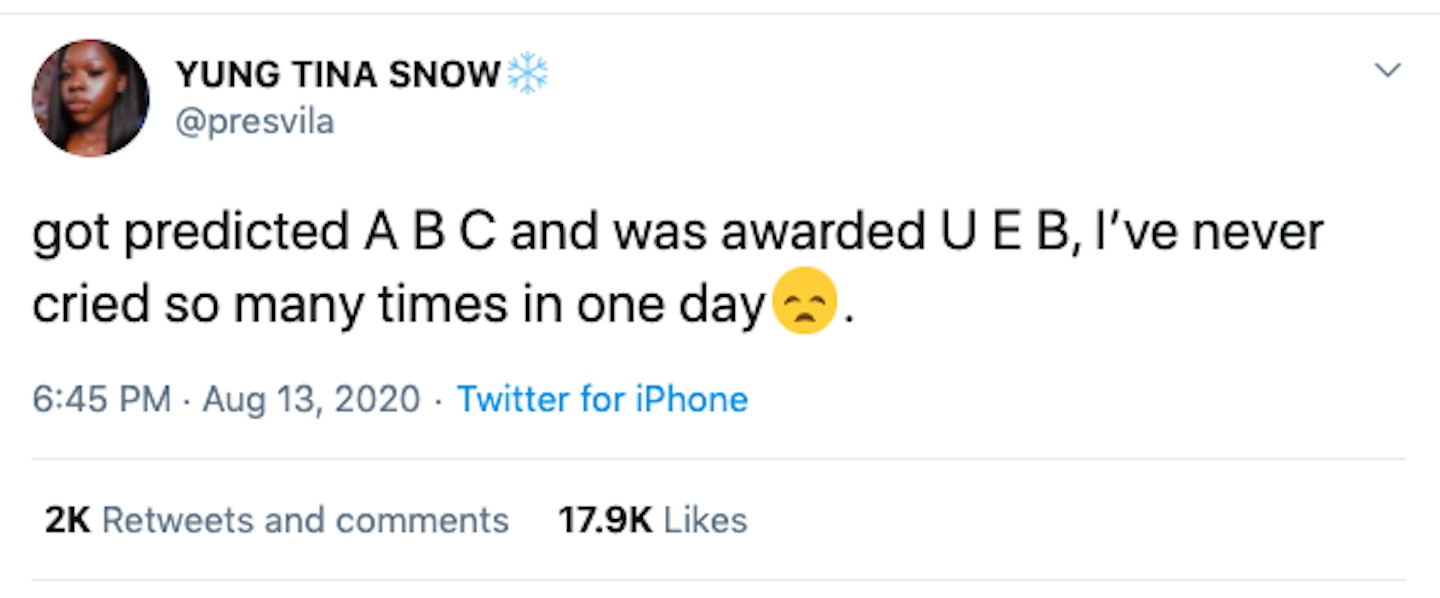 1 of 10
1 of 102020 A-Level Results - Grazia
 2 of 10
2 of 102020 A-Level Results - Grazia
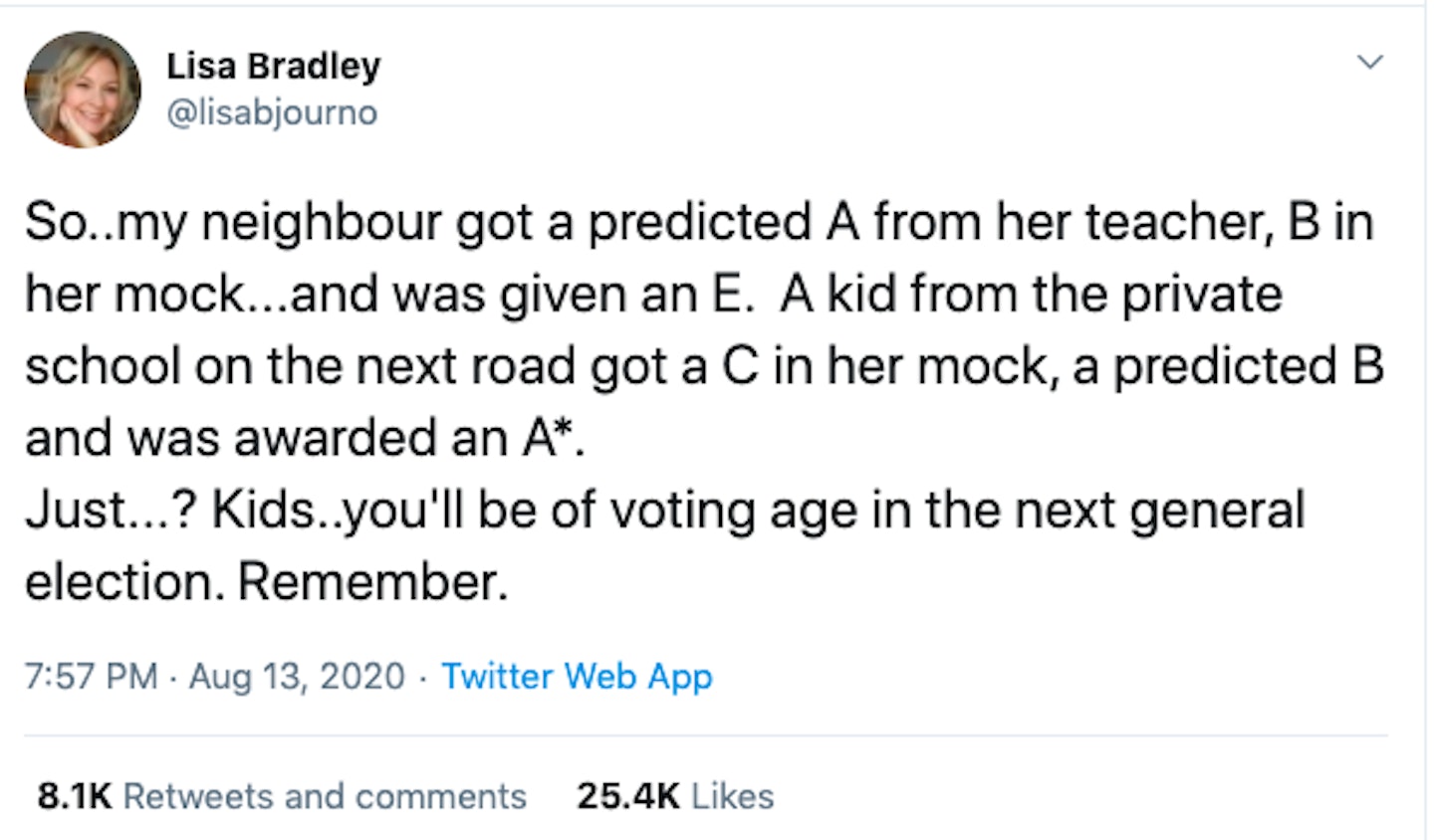 3 of 10
3 of 102020 A-Level Results - Grazia
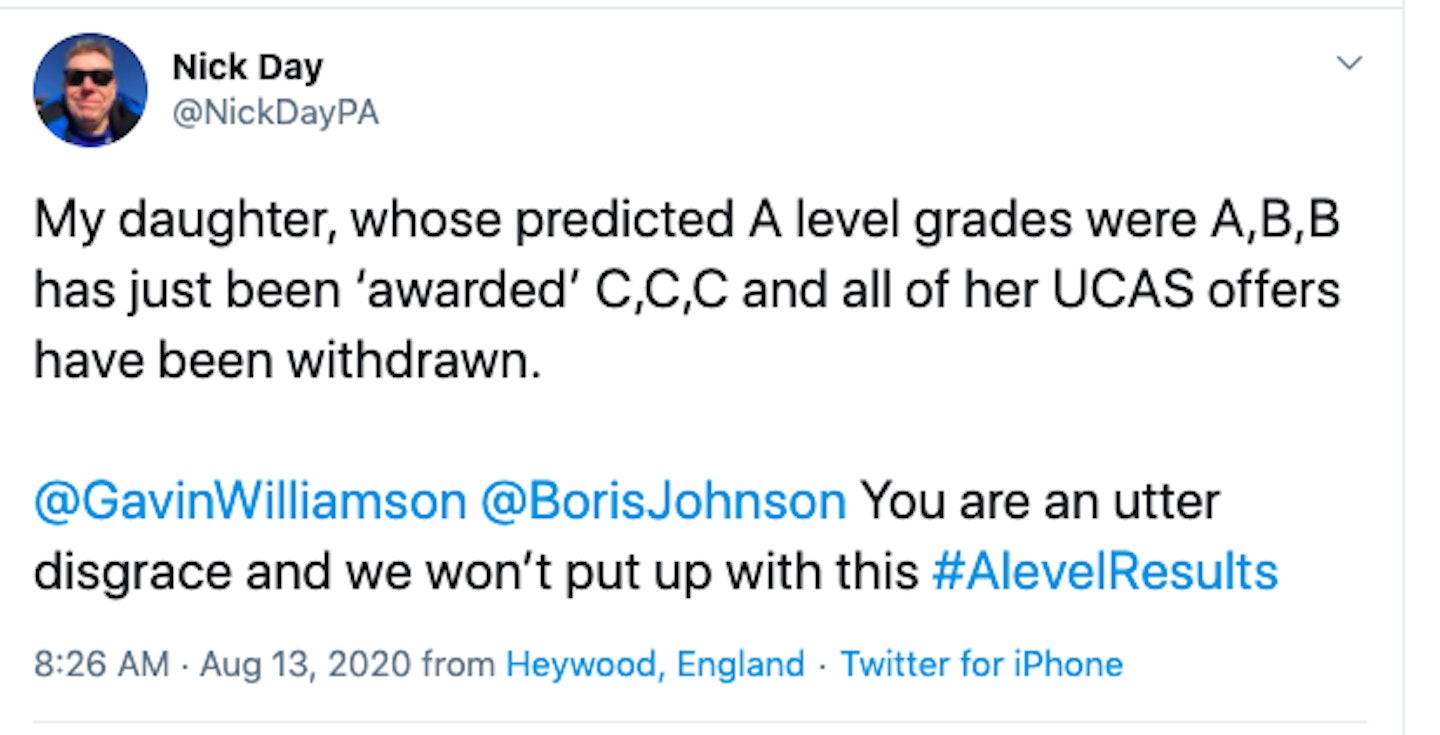 4 of 10
4 of 102020 A-Level Results - Grazia
 5 of 10
5 of 102020 A-Level Results - Grazia
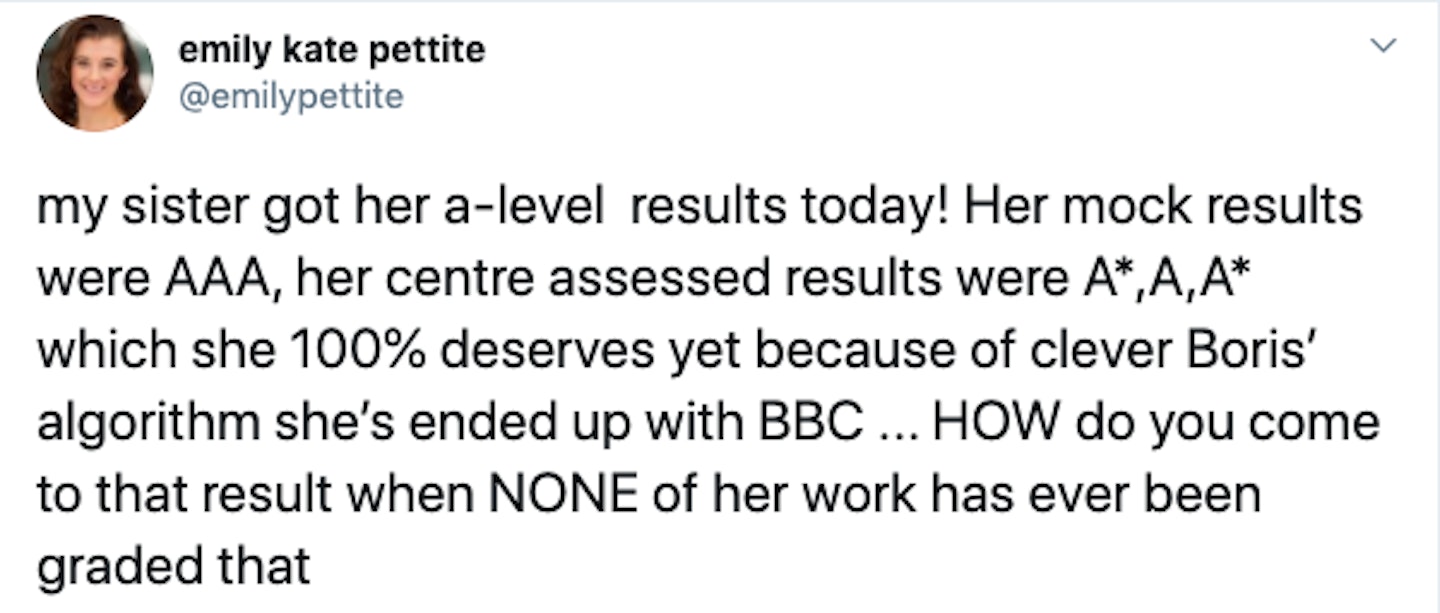 6 of 10
6 of 102020 A-Level Results - Grazia
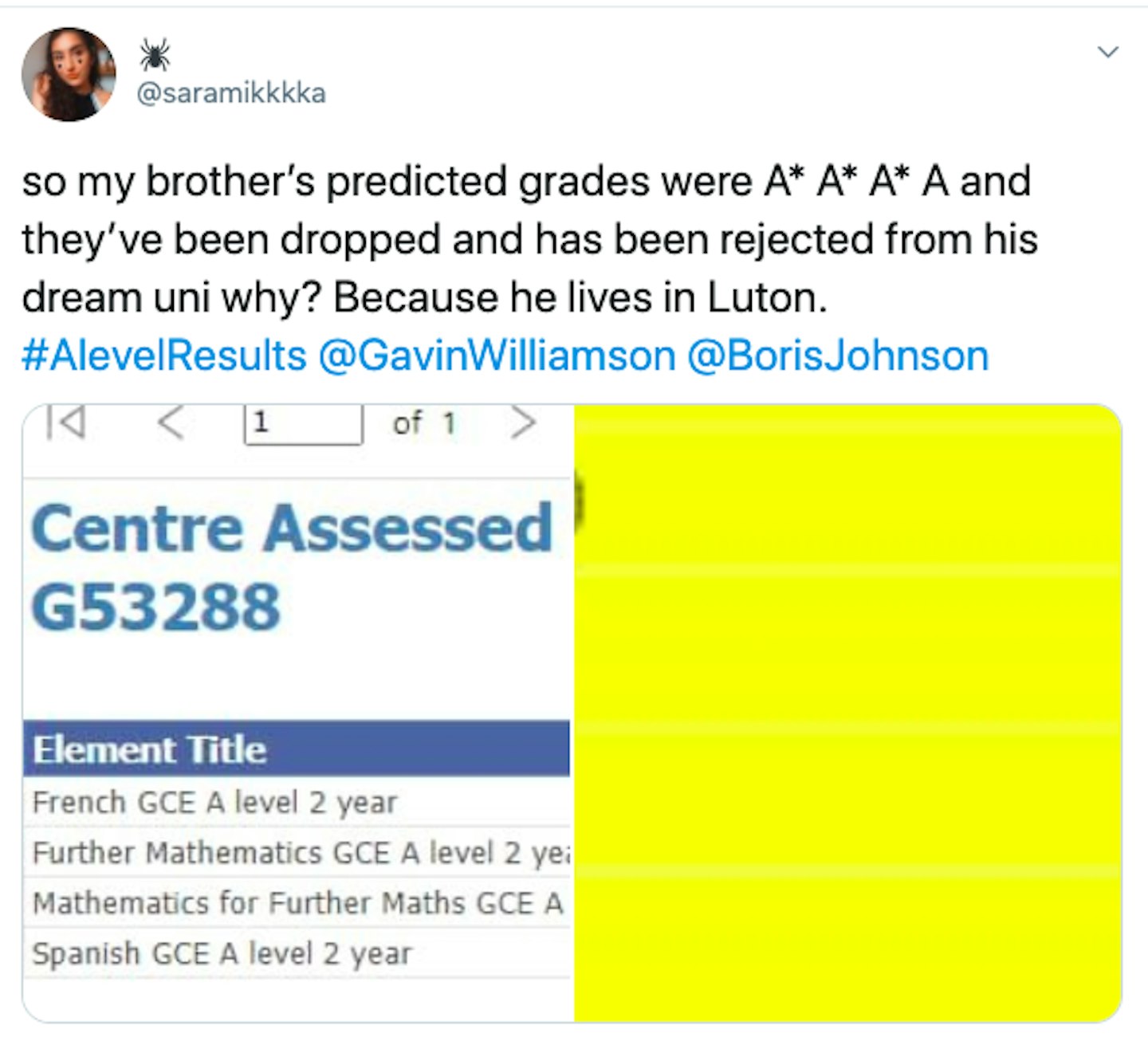 7 of 10
7 of 102020 A-Level Results - Grazia
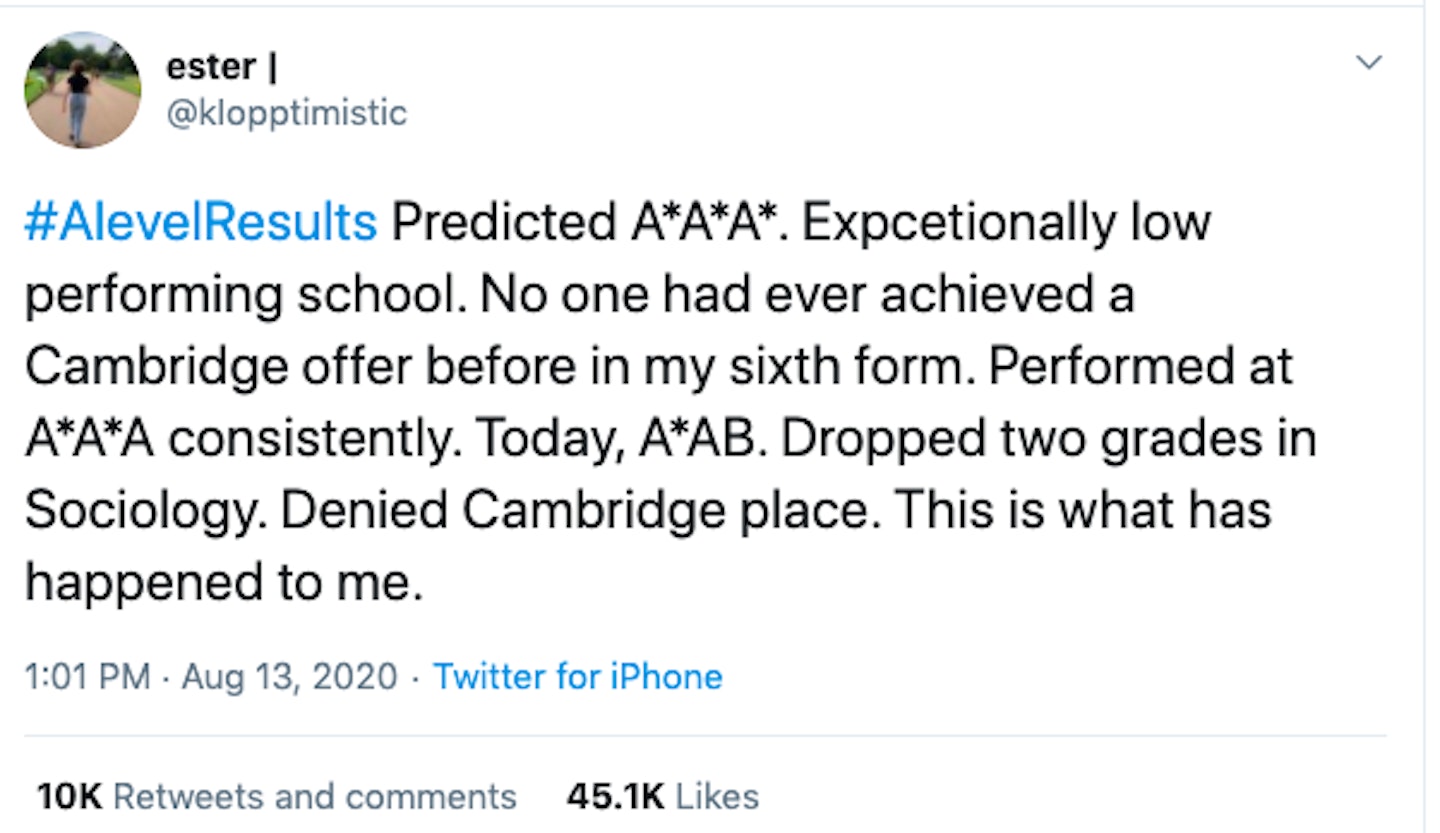 8 of 10
8 of 102020 A-Level Results - Grazia
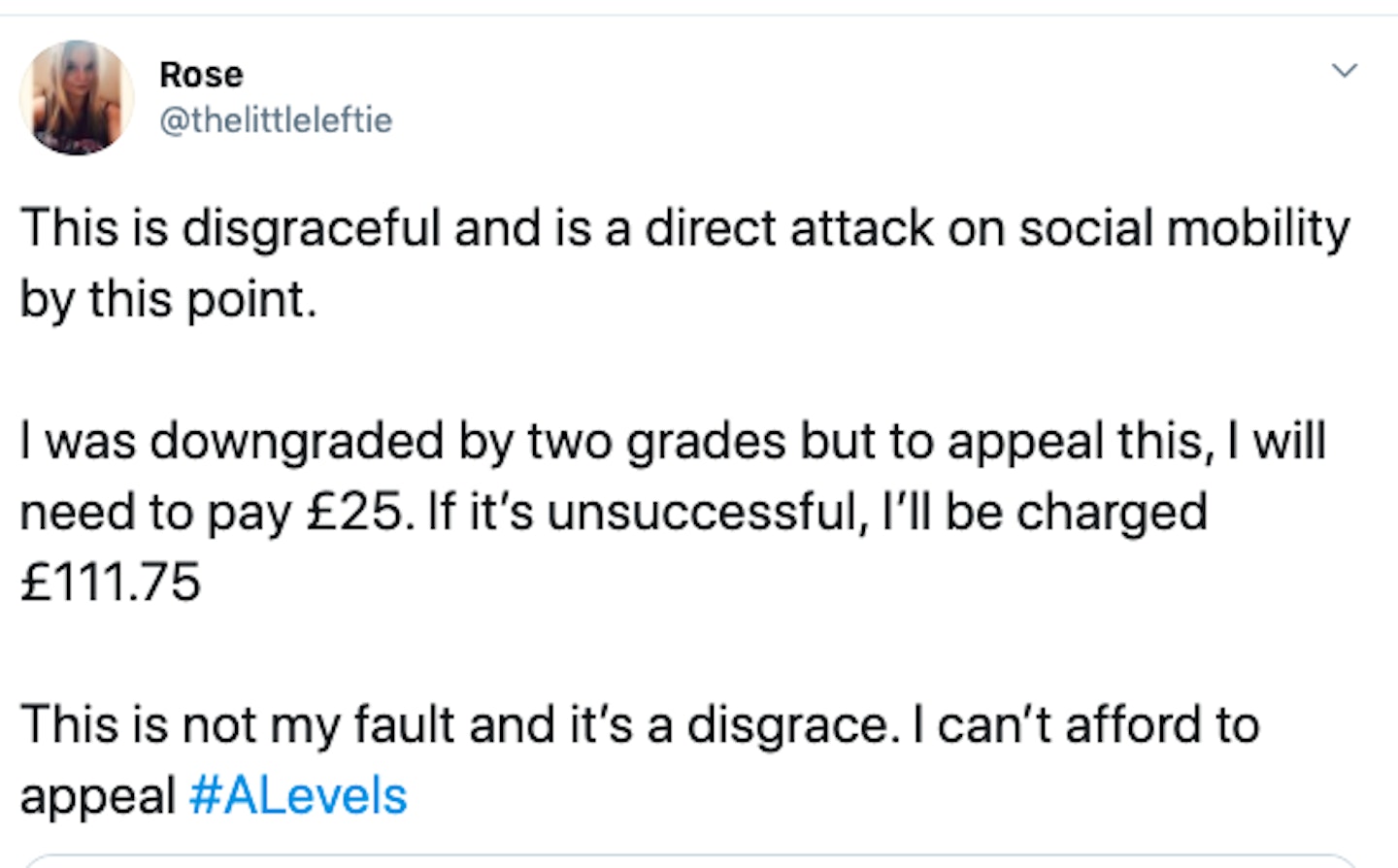 9 of 10
9 of 102020 A-Level Results - Grazia
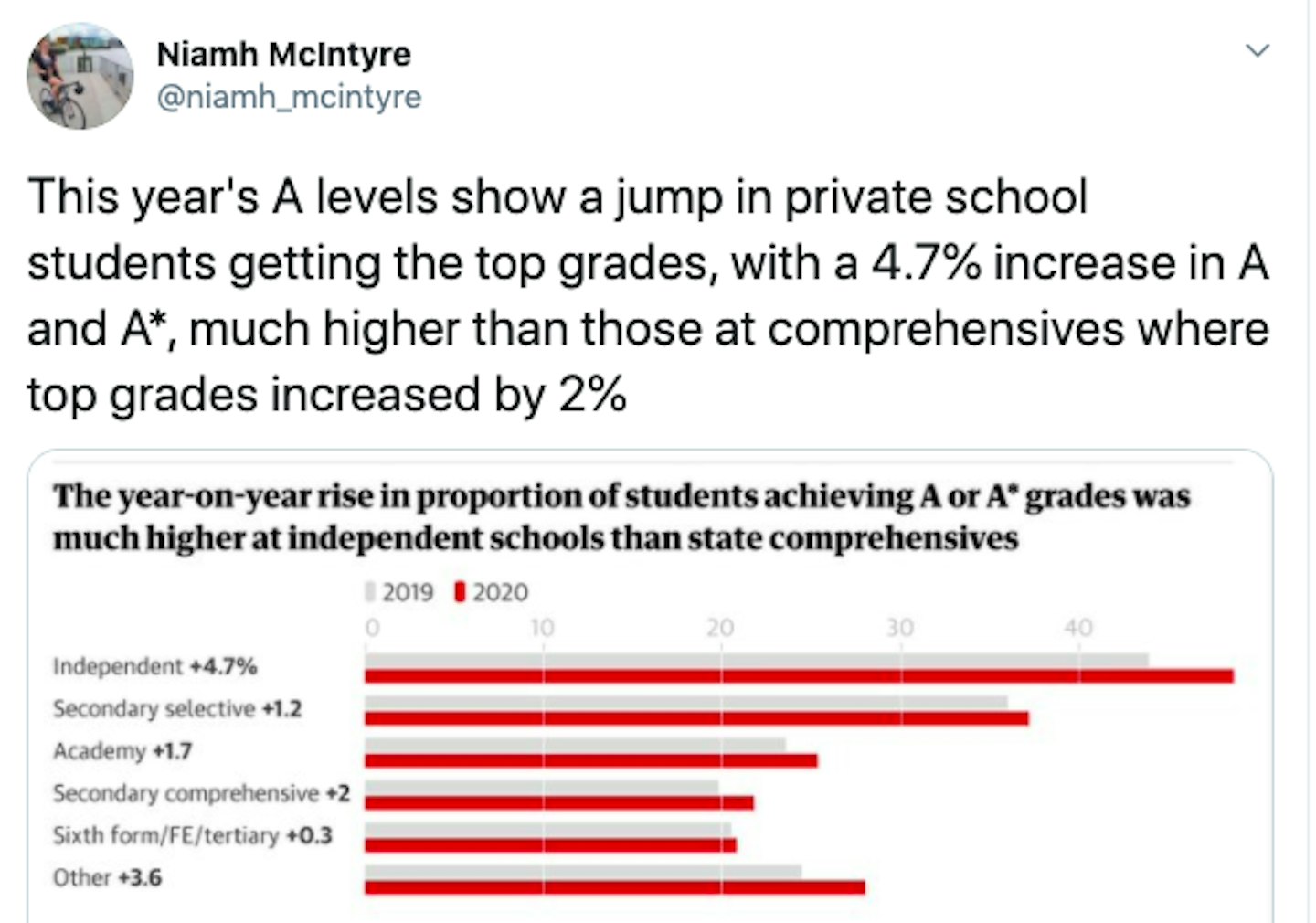 10 of 10
10 of 102020 A-Level Results - Grazia
In seeing these stories and the backlash amounting because of them, we can only hope the government follows Scotland’s lead and allow teacher assessments to replace the results. The Scottish government made this decision after it became apparent the same injustice suffered by disadvantaged pupils happened because of their statistical model.
Pupils who worked for years to achieve the grades they were predicted shouldn’t be penalised because of the school they went to or the area that they’re from. If anything, those who had previously achieved such high marks despite the less affluent environment should be praised even more.
Getting excellent grades, being accepted into top universities, these are crucial ways disadvantaged students are able to escape those surroundings – to take that away from them all because of a supposed fear of ‘grade inflation’ is abhorrent. When it’s clear that private school pupils are already benefiting from ‘grade inflation’, you have to ask yourself, what is the real risk the Tories are afraid of? Working class kids climbing up the social ladder?
Read More:
'The Anxiety I Spent My 20s Fighting Started With My A Levels'
'Our Future Prime Minister Shouldn’t Be Decided By A Few Old White Men'
